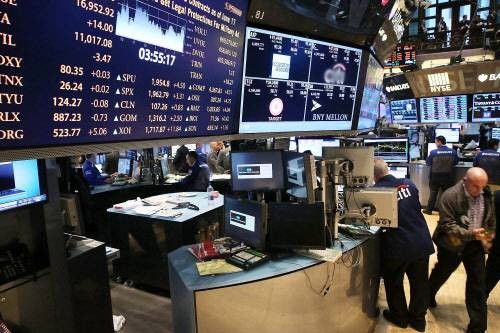The ABC of ETFs Economic Times
Post on: 23 Август, 2015 No Comment

Shruti Jain, ET Bureau Nov 16, 2008, 12.00am IST
An exchange traded fund (ETF) is essentially an index fund that trades like a stock and is listed on the exchange. Although popular abroad, it’s still a new concept in India. Currently, India has 16 ETFs with total assets under management of Rs 4,182 crore as of September 2008.
In the US, by contrast, there are 707 ETFs, with combined assets of 585.9 billion dollars or Rs 27.5 lakh crore. An ETF is a single security representing a basket of stocks that corresponds to a particular index, say, the S&P, CNX, Nifty or Sensex.
The ETFs trading value is based on the net asset value of the underlying stocks that it represents. Much like an index fund, an ETF offers built-in diversification. But because ETFs can be bought or sold within the trading day, they offer the flexibility of a stock.
Like individual equity securities, ETFs are traded on a stock exchange and can be bought and sold throughout the day through a broker-dealer. Why invest in an ETF? The popularity of exchange traded funds is growing: they combine diversification, cost efficiency and flexibility in a single investment.
Firstly, with an ETF, you trade a basket of stocks for a single brokerage, saving money on trades. Secondly, there are no shortterm redemption loads. Thirdly, ETFs allow you to take advantage of intraday changes in the market, as they trade throughout the day, like stocks. Fourthly, they let you benefit from sophisticated trading strategies such as hedging, diversification, and arbitraging between futures and cash market.

And lastly, you can choose from a range of ETFs, including funds that modify standard indices and sector-specific funds. Types of ETFs ETFs can be broadly classified into index, commodity, and bond funds. Most ETFs are index funds that hold securities and attempt to replicate the performance of a stock market index.
An index fund seeks to track the index’s performance by holding either the contents of the index or a representative sample of securities in the index. Commodity ETFs invest in commodities such as precious metals and futures. In India, we only have gold ETFs. There are other types of ETFs, such as currency ETFs and actively managed ETFs but they are not yet available in India.
Where can I buy ETFs? ETFs trade like stocks, and like them, ETF units can be bought or sold through an equity broker of the exchange on which the fund is listed. Are ETFs like index funds? ETFs and index mutual funds both seek to match the return of a market index. Both suit investors looking for diversification. However, there are important differences. The first is the minimum investment.
For investors with limited funds (say, less than Rs 1,000) who want to get started in the stock market, ETFs offer a cheap entry option — you can buy even one lone share, if you so choose. Index mutual funds require a minimum investment of Rs 5,000. Another difference is ease of use. ETFs can be bought or sold any time the market is open, via your brokerage account.














